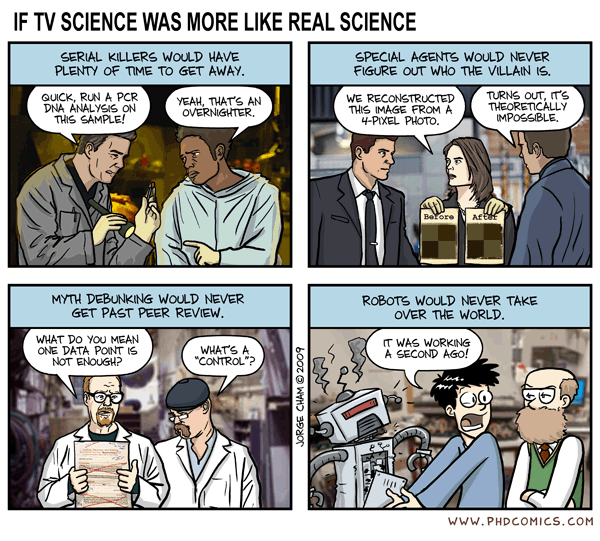Arjen Zondervan just presented a fascinating paper with the acknowledged long title "Effects of contextual manipulation on hearers' assumptions about speaker expertise, exhaustivity & real-time processing of the scalar implicature of
or." He presented two thought-provoking experiments on
exhaustivity & speaker expertise, but of primary interest to me was Experiment 3.
An important debate in the field has centered around whether
scalar implicatures depend on context. A couple years ago, Richard Breheny & colleagues published
a nice reading-time experiment in which was consistent with scalar implicatures being computed in some contexts but not others. Roughly, they set up a contexts something along the following lines:
(1) Some of the consultants/ met the manager./ The rest/ did not manage/ to attend.
(2) The manager met/ some of the consultants./The rest/ did not manage/ to attend.
Participants read the sentences one segment at a time (the '/' marks the boundaries between segments), pressing a key when they were ready for the next sentence. For reasons that may or may not be clear, it was thought that there would be an implicature in the first sentence but not in the second, making "the rest" fairly unnatural in the second sentence, and this resulted in subjects reading "the rest" more slowly in (2) than in (1).
This was a nice demonstration, and was, I tink, the first study of scalar implicature to use an implicit measure rather than just asking participants what they think a sentence means, which has certain advantages, but there were a number of potential confounds in the stimuli in this and the two other experiments they used. Zondervan fixed some of these confounds, re-ran the study and got the same results.
I was interested because, in collaboration with Jesse Snedeker, I have also re-run the Breheny study and also got that basic result. However, Zondervan and Breheny both also got longer reading times for the scalar term (e.g., 'some') in the condition where there is a scalar implicature. Both take this as evidence that calculating an implicature is an effortful process. In a series of similar experiments using my own stimuli, and I just don't get that part of the result. I am fairly convinced this is due to differences in our stimuli, but we're still trying to figure out why and what that might mean.
That said, the effect that all three of us get is, I think, the more important part of the data, and it's nice to see another replication.

















